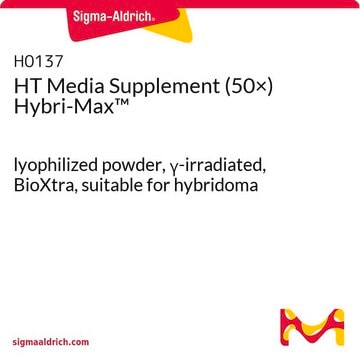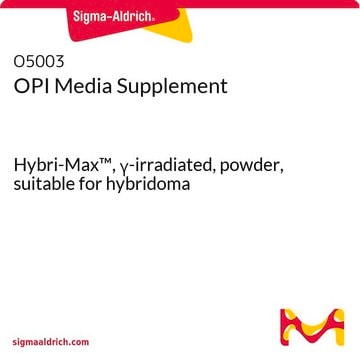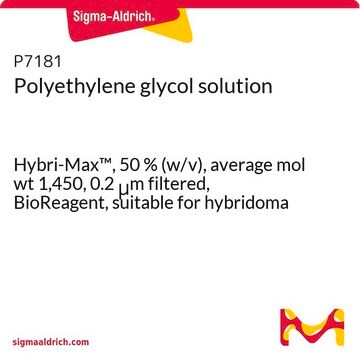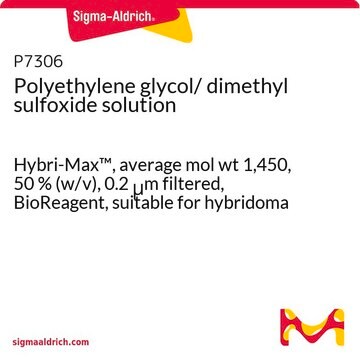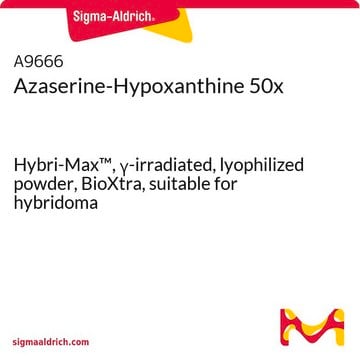H0262
HAT Media Supplement (50×) Hybri-Max™
lyophilized powder, suitable for hybridoma, BioXtra
Synonym(s):
HAT Supplement, Hypoxanthine-Aminopterin-Thymidin (HAT) media supplement
About This Item
Recommended Products
product name
HAT Media Supplement (50×) Hybri-Max™, γ-irradiated, lyophilized powder, BioXtra, suitable for hybridoma
sterility
γ-irradiated
product line
BioXtra
form
lyophilized powder
technique(s)
cell culture | hybridoma: suitable
impurities
endotoxin, tested
shipped in
dry ice
storage temp.
−20°C
Application
- in the selection and validation of hypoxanthine-guanine phosphoribosyltransferase (HPRT)-deficient clones
- in the generation of mAbs (monoclonal antibodies)
- in the luciferase-based bioassay (LUC) assay
Reconstitution
Legal Information
Signal Word
Danger
Hazard Statements
Precautionary Statements
Hazard Classifications
Acute Tox. 4 Oral - Repr. 1B
Storage Class Code
6.1C - Combustible acute toxic Cat.3 / toxic compounds or compounds which causing chronic effects
WGK
WGK 3
Flash Point(F)
Not applicable
Flash Point(C)
Not applicable
Personal Protective Equipment
Certificates of Analysis (COA)
Search for Certificates of Analysis (COA) by entering the products Lot/Batch Number. Lot and Batch Numbers can be found on a product’s label following the words ‘Lot’ or ‘Batch’.
Already Own This Product?
Find documentation for the products that you have recently purchased in the Document Library.
Customers Also Viewed
Related Content
Major technological advances have made the production of monoclonal antibodies quicker and more efficient. There are three established platforms for antibody discovery. We offer reagents for production of monoclonal antibody libraries using each of these techniques.
Major technological advances have made the production of monoclonal antibodies quicker and more efficient. There are three established platforms for antibody discovery. We offer reagents for production of monoclonal antibody libraries using each of these techniques.
Major technological advances have made the production of monoclonal antibodies quicker and more efficient. There are three established platforms for antibody discovery. We offer reagents for production of monoclonal antibody libraries using each of these techniques.
Major technological advances have made the production of monoclonal antibodies quicker and more efficient. There are three established platforms for antibody discovery. We offer reagents for production of monoclonal antibody libraries using each of these techniques.
Our team of scientists has experience in all areas of research including Life Science, Material Science, Chemical Synthesis, Chromatography, Analytical and many others.
Contact Technical Service